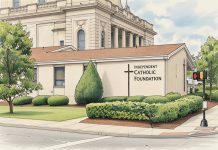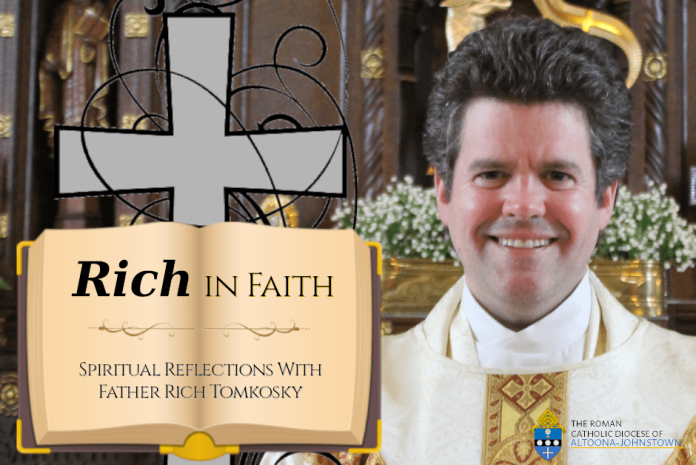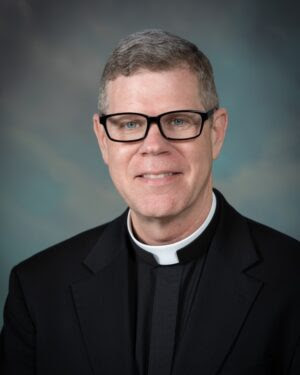By Father Rich Tomkosky
In Acts, chapter nine, we hear about two different types of fear. One is the fear of Saul when he first converted and the other Christians didn’t believe it and thought it was a ruse to get them, and the other fear is the fear of the Lord.
When we think of the emotion or reaction of fear in our lives, we usually think of it as it is on a human level, which is a state of dread or a feeling of alarm or disquiet caused by an awareness or expectation of danger. This is the type of fear the disciples felt toward Saul when he came to Jerusalem for the first time after his conversion event on the road to Damascus, the city of which he was going to persecute the Christians, until God intervened. The reaction of the Christians toward him at first was natural. They were afraid of him because of his past actions. It took a while for them to warm up to Saul and his change of heart.
On the other hand, we also see in the Acts of the Apostles of a second type of fear. It says that the Church was being built up and walked in the fear of the Lord.
What does the fear of the Lord mean? The fear of the Lord, if properly understood, is not a state of dread or feeling of alarm in the presence of the all-holy God, but rather a respect and love for the Lord and His ways.
This leads to Saint John the Evangelist who tells us not to love simply in word or speech, but rather in deed and truth. Saint John is saying that it is one thing to say we love God and neighbor, but the true test is if we live it in our daily words and deeds. We must become disciples of the Lord and not mere spectators.
As Jesus puts it so well, “By this is my Father glorified, that you bear much fruit and become my disciples.” It’s a process of growing in discipleship. It’s not automatic. For instance, just because we come to Mass on a regular basis doesn’t mean we are automatically the Lord’s disciples.
So, are we a disciple or just a spectator? Saint John says to become a disciple, or a true follower of the Lord, we need to have confidence in God’s strength and mercy to help us live our Catholic faith well on a daily level, rooted in that profound respect (holy fear) for Him. By keeping His commandments, which includes both the Ten Commandments and the teaching of our Catholic faith in all areas of life, we show our love for God and neighbor. We then remain in Him and He in us through the gift of the Holy Spirit given to us in the Sacrament of Baptism and Who remains with us to mold us more profoundly into the image of Jesus if we don’t turn away from the Lord though indifference and deliberate mortal sin.
If we have a proper fear or reverence for the Lord and show it by striving always daily to follow Him in love by keeping His commandments, then we will truly be a branch on the vine of the Lord’s family, which is the Church.
As Jesus says, “I am the vine, you are the branches. Remain in me, as I remain in you. Just as a branch cannot bear fruit on its own unless it remains on the vine, so neither can you unless you remain in me.” Living in God’s friendship or the state of grace is the greatest gift in this life because it will lead to eternal friendship/union with God, as well as to the inner peace that the world cannot give. This gift of God’s life and peace increases in our souls as we grow in prayer (interior union) and receive the Sacraments with faith, gratitude, and humility.
The greatest aid to our spiritual growth is Holy Communion, where we literally receive the Body, Blood, Soul and Divinity of Jesus our Savior, and where Jesus is, so also is the Father and the Holy Spirit – so the Trinity’s life increases in us – as long as we receive Holy Communion with faith and not in the state of mortal sin; and if we can’t receive Holy Communion now, to do what we have to do spiritually to be able to receive someday.
As this holy reverence is increasingly rooted in us, then our Heavenly Father will purify us even further to reflect Jesus (sanctity). This is what Jesus is referring to when He says, My Father is the vine grower. He takes away every branch in me that does not bear fruit (people who remain obstinately in mortal sin); and every one that does, He prunes (through the mystery of the Cross/suffering) so that it bears more fruit. In the end, whether we remain rooted in the Lord or not in this life will determine where we end up in eternity.
May we daily and humbly ask the Holy Spirit to help grow in goodness and to turn away from all sin to truly change like Saul did, and so live always in the truth of the Lord’s light and love. Remember Saul eventually became Saint Paul, which should give all of us hope in our life struggles. May we all one day hear our names called out by the Lord Jesus with the title Saint in front of it! God bless you.
Father Rich Tomkosky is the Pastor of Saint Thomas the Apostle Parish in Bedford and the Pastor of Seven Dolors of the Blessed Virgin Mary Parish in Beans Cove.






























